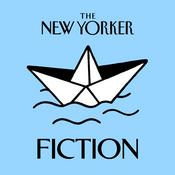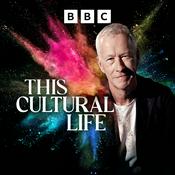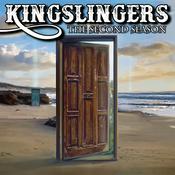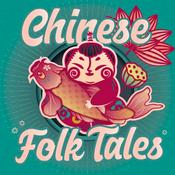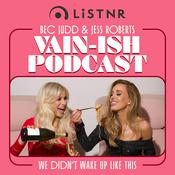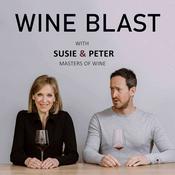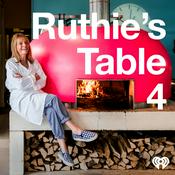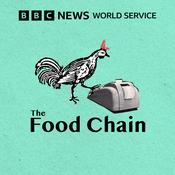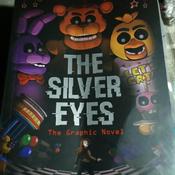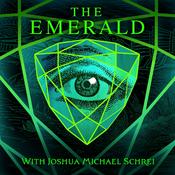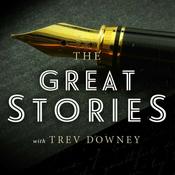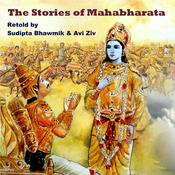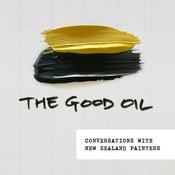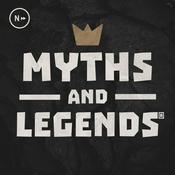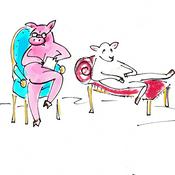34 episodes
- For twenty years, the 2004 cupping form profoundly shaped the specialty coffee world.
But on the hillsides of coffee farms, some of the form’s byproducts have been disadvantaging producers.
In this episode, we follow two producers whose lives collided with the myth of universal quality. These stories reveal how a single idea of “quality” can close doors for the people with the least power in the supply chain.
The new coffee evaluation form, the CVA, is still young, and with any luck it will keep evolving. I hope for a form that can empower even the smallest producers.
Please support my work directly at Ko-fi.com/FilterStories
Other ways you can help:
Leave a 5 star rating on Spotify
Follow me on Instagram and tag me in an Instagram story
Write a review on Apple Podcasts
Discover how I make these Filter Stories episodes by subscribing to my Substack newsletter
Go deeper into the story of quality:
The original Filter Stories episode about Murray Cooper in Ecuador, Firefly
Specialty Coffee Association's new Coffee Value Assessment
2004 cupping form from the Specialty Coffee Association of America
SCAA Coffee Cuppers Handbook (4th edition, 2011)
Kenneth Liberman's book, "Tasting Coffee: An Inquiry into Objectivity"
SCA's video series on the CVA presented by Peter Giuliano
How does Perfect Moose detect what kind of milk is in the pitcher? Click here to find out.
What kind of racing car does the Gaggia Classic GT home espresso machine remind you of? Use discount code FS202610 to get 10% off.
What does the Marco MilkPal look like to you? WALL-E? Something Steve Jobs would be proud of? Check it out here. - If you ask two specialty professionals what makes a high-quality coffee, you’ll likely get a surprisingly consistent answer: clean, sweet, juicy, bright. To an outsider, they would be forgiven for thinking coffee quality is universally defined.
But the truth is more sober.
In this episode, we examine how a simple cupping form helped create a universal idea of quality. We then look at the evidence that, in fact, it’s just the personal preferences of a small group of people masquerading as universal quality.
Please support my work directly at Ko-fi.com/FilterStories
Other ways you can help:
Leave a 5 star rating on Spotify
Follow me on Instagram and tag me in an Instagram story
Write a review on Apple Podcasts
Discover how I make these Filter Stories episodes by subscribing to my Substack newsletter
Go deeper into the story of quality:
2004 cupping form from the Specialty Coffee Association of America
SCAA Coffee Cuppers Handbook (4th edition, 2011)
Cup of Excellence cupping form
Kenneth Liberman's book, "Tasting Coffee: An Inquiry into Objectivity"
SCA's video series on the CVA presented by Peter Giuliano
How does Perfect Moose detect what kind of milk is in the pitcher? Click here to find out.
What kind of racing car does the Gaggia Classic GT home espresso machine remind you of? Use discount code FS202610 to get 10% off.
What does the Marco MilkPal look like to you? WALL-E? Something Steve Jobs would be proud of? Check it out here. - For the longest time, coffees were dull and bitter. But then a small group of pioneers changed the world.
In this episode, we travel back to the 1960s and ’70s to meet the trailblazers who realised coffees could taste distinctive: sweeter, brighter, cleaner.
We discover how their personal preferences became a movement, then a form, and eventually a global definition of “quality”.
Please support my work directly at Ko-fi.com/FilterStories
Other ways you can help:
Leave a 5 star rating on Spotify
Follow me on Instagram and tag me in an Instagram story
Write a review on Apple Podcasts
Discover how I make these Filter Stories episodes by subscribing to my Substack newsletter
Go deeper into the story of quality:
Specialty Coffee Association's new Coffee Value Assessment
2004 cupping form from the Specialty Coffee Association of America
SCAA Coffee Cuppers Handbook (4th edition, 2011)
Michael Sheridan of CQI discussing the inter-organisational politics behind the Houston Expo announcement on Lee Safar's Map It Forward podcast
How does Perfect Moose detect what kind of milk is in the pitcher? Click here to find out.
What kind of racing car does the Gaggia Classic GT home espresso machine remind you of? Use discount code FS202610 to get 10% off.
What does the Marco MilkPal look like to you? WALL-E? Something Steve Jobs would be proud of? Check it out here. - For the longest time, the coffee community only cared about water’s impact ruining espresso machine boilers and kettles. But what about water’s impact on coffee flavour?
In this episode, I tell the story of how the specialty coffee community came to understand water chemistry: the pioneering work of the computational chemist Christopher Hendon and British roaster Maxwell Colonna-Dashwood, the genesis of the SCA’s Water Quality Handbook, and where we are today understanding the impact of minerals on our water.
I strongly recommend listening to the two episodes before this one first: Getting great water for coffee, step-by-step & The two ingredients in water that ruin your coffee, and the ancient story behind them
Please spread the word about The Science of Coffee!
Leave a 5 star rating on Spotify
Follow me on Instagram and tag me in an Instagram story
Write a review on Apple Podcasts
Discover how I make these Filter Stories episodes by subscribing to my Substack newsletter
Want to go deeper into water chemistry?
Read the SCA’s Water Quality Handbook
BWT White Paper on the effects of magnesium (German)
Christopher Hendon’s Instagram where he’ll announce his new version of his book, Water for Coffee
Do an online Certificate of Advanced Studies at the Coffee Excellence Centre
Season 3 of The Science of Coffee is made possible by these leading coffee organisations:
The Coffee Quest | BWT | TODDY | Algrano | Probat
Note: this is a reworked version of my 2022 episode Water for Brewing Coffee, including portions of my 2024 episode How to think like a scientist, part 2.
How does Perfect Moose detect what kind of milk is in the pitcher? Click here to find out.
What kind of racing car does the Gaggia Classic GT home espresso machine remind you of? Use discount code FS202610 to get 10% off.
What does the Marco MilkPal look like to you? WALL-E? Something Steve Jobs would be proud of? Check it out here. The two ingredients in water that ruin your coffee, and the ancient story behind them
28/7/2025 | 38 mins.550 million years ago, earth was perfect. We had perfect water for coffee AND we were living in a vegetarian paradise!
But then Earth changed—violently. The planet shifted from a peaceful, plant-eating paradise to a darker, more brutal world. And in this new world, the chemistry of water was forever altered.
This is the wild story of how earth-shaking forces and the spirits of long-dead critters ruin your coffees today.
This story will help you remember the two invisible ingredients in your water that have a huge impact on coffee flavour and your brewing equipment: calcium and hydrogen carbonate.
Read Marcia Bjonerud’s amazing book, Reading the Rocks
Please spread the word about The Science of Coffee!
Leave a 5 star rating on Spotify
Follow me on Instagram and tag me in an Instagram story
Write a review on Apple Podcasts
Discover how I make these Filter Stories episodes by subscribing to my Substack newsletter
Season 3 of The Science of Coffee is made possible by these leading coffee organisations:
The Coffee Quest | BWT | TODDY | Algrano | Probat
Note: this is a reworked version of my 2022 episode Water for Brewing Coffee.
How does Perfect Moose detect what kind of milk is in the pitcher? Click here to find out.
What kind of racing car does the Gaggia Classic GT home espresso machine remind you of? Use discount code FS202610 to get 10% off.
What does the Marco MilkPal look like to you? WALL-E? Something Steve Jobs would be proud of? Check it out here.
More Arts podcasts
Trending Arts podcasts
About The Science of Coffee
The Science of Coffee is a journey into coffee’s hidden microscopic secrets to help you make even better coffee at home.
Documentary maker and coffee professional James Harper travels the world and speaks with leading coffee scientists to help you appreciate coffee more deeply.
You are going to get taken into the science of water, coffee extraction, plant genetics, espresso technology, latte foam, sonic seasoning, our sense of taste and smell, organic farming, roasting, grinding and freshness, and how to think like a scientist.
Press the Subscribe button so you don’t miss future episodes!
The Science of Coffee is a spin-off series from James Harper’s documentary podcast Filter Stories.
Follow James on Instagram: https://bit.ly/2Mlkk0O
Listen to Filter Stories: https://bit.ly/3ajoT5
Podcast websiteListen to The Science of Coffee, Service95 Book Club With Dua Lipa and many other podcasts from around the world with the radio.net app
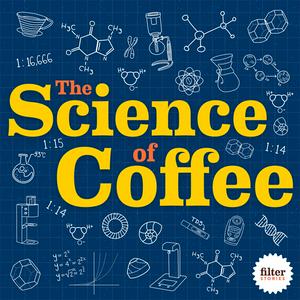
Get the free radio.net app
- Stations and podcasts to bookmark
- Stream via Wi-Fi or Bluetooth
- Supports Carplay & Android Auto
- Many other app features
Get the free radio.net app
- Stations and podcasts to bookmark
- Stream via Wi-Fi or Bluetooth
- Supports Carplay & Android Auto
- Many other app features


The Science of Coffee
Scan code,
download the app,
start listening.
download the app,
start listening.



